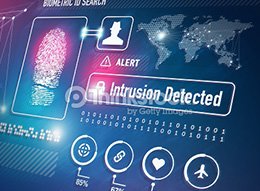7 Lessons Learned: Keeping Employees Productive at Home
Whether your business is looking to embrace remote work for the long haul or you’re bringing your employees back into the office full-time until a second wave happens, it’s clear that a new normal means there will be some amount of working from home required well into the future.
Use our 7 IT lessons from the COVID-19 shutdown as you figure out the new normal and prepare for potential shutdowns in the future.
1. It’s All About the Bandwidth
There are plenty of corners you can cut when you’re in a bind but having enough bandwidth isn’t one of them. Most people have enough one-way bandwidth to stream Netflix on a device or two. But that’s not enough for running business apps and videoconferencing – especially when kids are doing remote learning in the living room.
Lesson: Establish minimum bandwidth standards for employees who work from home. Many employees will already meet this standard, but those who don’t will lag and have trouble communicating and working collaboratively with their coworkers.
2. Unsecured Computers Don’t Belong on Your VPN
It’s a good security practice to have secure devices access your network through a virtual personal network (VPN) because it keeps people off your network who don’t belong there. Personal computers and unsecured devices are vulnerable and can bring threats to your network, giving hackers full access to your network, files, and applications.
Lesson: Provide workers with a secure laptop they can use in the office or at home. If this isn’t possible, have your IT services provider review and certify all personal devices.
3. WFH Employees Need Guidance
Without the four walls of your business around them as a reminder, it’s easy for staff members to forget important elements of your business’s culture, rules, and expectations. Maintaining an appropriate dress code for videoconferencing is one common standard that slips but there are plenty of others just as important.
Lesson: Establish clear, documented expectations for all aspects of working from home. These expectations and guidelines should include everything from processes, budgets, and technology requirements to dress code and videoconferencing etiquette.
4. Quality Phone Calls at Home
Poor quality voice calling is one of the most common problems we hear from clients and prospects who weren’t set up for remote work before COVID-19. For example, a large insurance company struggled with dropped calls and audio cutting in and out on client calls. This infuriated customers who felt their time was being wasted and annoyed employees whose productivity suffered considerably.
Lesson: Deploy a dedicated business communications suite. It’s the best thing you can do for remote workers and office-based employees alike. Make sure your IT provider reviews access and bandwidth needs.
5. You May Not Need Your Conference Room
Keeping a safe distance means your dedicated conference room won’t get the same kind of use it did before. Videoconferencing will continue to be an essential tool going forward. There are a lot of options and not all of them are equal. Consider how many clients you have, how many video calls will be active at once, and what your security and compliance needs are.
Lesson: Get a subscription to secure, business-grade videoconferencing. Videoconferencing has become too essential to trust to free services that allocate resources and support to paying customers.
6. There Is No Free Pass on Compliance
Some businesses made some concerning compromises to compliance to keep business running during the lockdown. Clinics and doctors turned to free, unsecured, non-HIPAA compliant services like Zoom to quickly deploy video telemedicine. A new normal means considering the compliance requirements anew. Government regulators won’t turn a blind eye to compliance requirements.
Lesson: Resolve compliance risks created during COVID. The longer you linger with non-compliance, the more trouble you invite.
7. The Days of Getting a Pass on Security Are Over
Now is the worst moment to have a breach. Sales are down for many businesses. Consumers are worried. Additionally, hackers have now had plenty of time to develop COVID and work-from-home-specific phishing attacks and have deployed them with great success.
Lesson: Train your team on cybersecurity now. Your employees are on the frontline in protecting your business against cyberattacks. Conduct regular cybersecurity training and update your training to account for current threats.
Look Forward But Don’t Ignore What We Just Went Through
As you reopen your business or transition your employees back to the office, take some time to review what worked and what didn’t during these past few difficult months. Work with an IT expert to make sure you have your bases covered.
VersaTrust is a security-first managed IT provider that can help map out your sustainable new normal. Call 817-595-0111 or contact us online.








